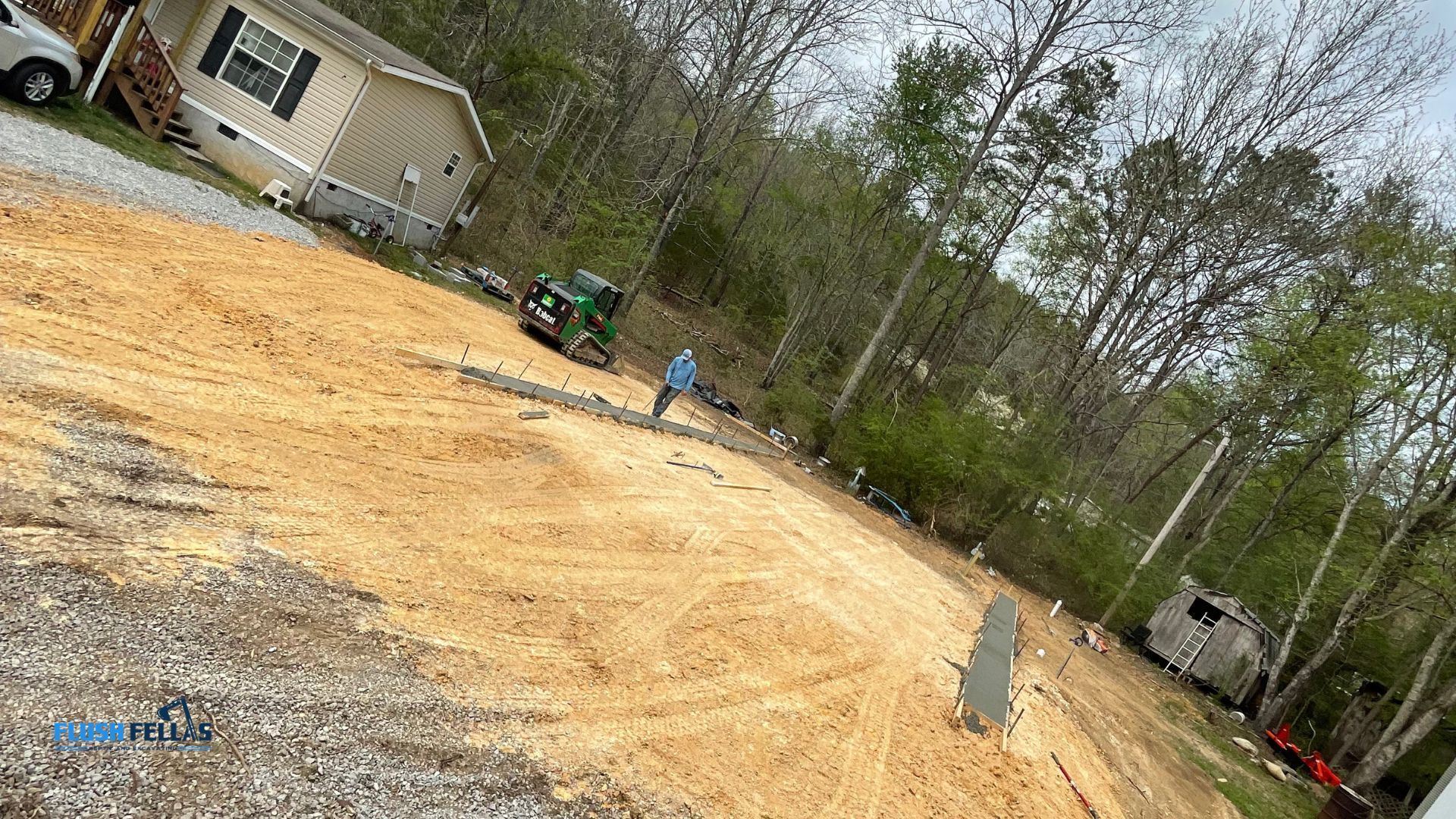Septic systems are complicated wastewater treatment systems that can significantly affect drinking water quality. Septic systems are installed on properties not connected to a public sewer line, typically in rural areas. Septic systems may impact local drinking water wells or surface water bodies. The extent of this impact depends on how well your septic system is designed, installed, maintained, and if it is used properly. Systems that are sited in densities that exceed the treatment capacity of regional soils and systems that are poorly designed, installed, operated, or maintained can cause problems. (1)
Therefore, septic system maintenance and regular inspection by reliable septic tank pumping companies in Chattanooga area are necessary to limit any negative impacts on drinking water quality. In this article, we'll discuss how septic systems can affect drinking water quality and the steps that should be taken to ensure that these treatment systems are functioning properly.
How Septic System can Affect Drinking Water Quality
Septic systems can affect drinking water quality in the following ways
Groundwater Contamination
Untreated wastewater that seeps into the ground from a septic tank can contaminate local groundwater sources. This can lead to high levels of pollutants in the water and altered levels of oxygen, chloride, and other minerals. This contamination can sometimes cause health problems for those who consume the water.
Surface Water Contamination
Septic systems can contaminate nearby surface water sources, such as lakes, rivers, and streams. If the septic systems are worn or not properly maintained, raw effluent can seep into these sources, leading to unsafe levels of bacteria, pollutants, and toxins. This can seriously impact humans, fish, and other aquatic life.

Presence of Pathogens
Septic systems can introduce pathogens into nearby water sources. These can include things like E. coli, Legionella, and other microorganisms that can cause harm to humans if consumed. Therefore, it is important to maintain septic systems and regularly check them for any signs of contamination.
Increase in Nutrients
Septic systems can release excessive nutrients into nearby water sources. These nutrients can lead to increased algae, which can further damage the water quality by consuming oxygen and killing aquatic life.
Flooding of Nearby Areas
When septic systems become overwhelmed, they can overflow and flood nearby areas. This can further contaminate drinking water sources, resulting in both health and environmental issues. Therefore, it is important to maintain septic systems and check them regularly to ensure they function correctly.
Contamination of Soil
Septic systems can also cause contamination of local soil. Unmaintained systems and malfunctioning units can cause wastewater to leak directly into the surrounding soil. This can result in hazardous materials such as pathogens and pollutants entering the environment and potentially polluting nearby drinking water sources.
Leaching of Chemicals
Septic systems sometimes fail to hold and filter out contaminants such as nitrates, chlorides, and phosphates. These chemicals are then leached into the surrounding environment, contaminating the nearby water table. Not only can this contaminate home and agricultural wells, but it can also contaminate larger rivers, lakes, and coastal areas.
Soil Erosion
Septic systems are typically located in areas where soils are naturally permeable. If the septic tanks and leach fields are not properly installed and maintained, the wastewater can seep into the groundwater and cause soil erosion. Additionally, soil erosion can lead to runoff, contaminating surface water with unwanted pollutants and bacteria.
Soil Degradation
Soil degradation can occur when improperly disposed of chemicals and other materials – such as motor oil – are released from the septic system. These items can eventually enter the groundwater and drinking water supplies. Heavy metals like arsenic, lead, and mercury in high levels can become present in the water and potentially lethal. Furthermore, since these chemicals don't evaporate over time, they can remain in the environment for extended periods, further endangering the safety of the drinking water.
Salts
The backwash from septic systems can contain high salts, which can be extremely damaging to the environment. Salts entering drinking water can cause several health issues, like dehydration and electrolyte imbalance. Furthermore, salts can rob agricultural land of fertility, creating an environment that is not conducive to farming. Finally, when salt is present in the air, it can form dust particles that eventually enter drinking water sources.
Steps to Ensure These Treatment Systems Function Properly.
By taking these steps, individuals can help to protect drinking water quality even when living in a home with a septic system.
Regular Inspection
Septic systems should be inspected at least once every three to five years by a trained professional from a company specializing in septic tank pumping Chattanooga, depending on local codes and regulations. This can help to identify any potential issues before they become major problems.
Proper Maintenance
All septic system components should be maintained according to manufacturer guidelines, including cleaning the tank regularly and replacing any defective components. This can help reduce the risk of contamination of local drinking water supplies.
Careful Disposal of Household Chemicals
When disposing of household chemicals and other hazardous materials, it is important to remember that they can all have an adverse effect on drinking water quality. Chemicals should never be disposed of in the septic system, as this could contaminate the groundwater and local drinking water. They should instead be taken to a hazardous waste disposal facility.
Responsible Landscaping
Trees and large shrubs, for example, should never be planted too close to the tank as their roots can cause significant damage or blockages. Other structures, such as driveways and patios, should also not be built directly over the tank as this could impede its function.
Protective Measures
Homeowners should also take protective measures when installing a new system or repairing an existing one. Special materials such as clay compaction blankets, trench liners, and filters can be installed around the septic system to keep contaminants from entering nearby drinking water sources.
Proper Treatment of Waste
Properly treating waste is essential to ensure it does not enter drinking water sources. Reducing the number of toxic materials and chemicals used in the home and disposing of them correctly can help decrease the chances that they will enter the water supply. Additionally, reducing the amount of wastewater by conserving water can help keep drinking water clean.
For more information on Flush Fellas Septic & Excavating and our services, feel free to reach us via phone today: (423) 498-9839.

About the author
Charles Chandler
Charles Chandler is the founder of Flush Fellas, a septic and excavating company based in Chattanooga, TN. With a passion for providing top-notch services to his clients, Charles has established himself as a prominent figure in the industry. He has extensive knowledge of septic systems, excavation, and drainage solutions, which he uses to offer customized services that meet the specific needs of his clients. Charles is committed to providing exceptional customer service and building long-term relationships with his clients. He is dedicated to staying up-to-date with the latest industry trends and innovations to ensure that Flush Fellas continues to offer the best services possible.


